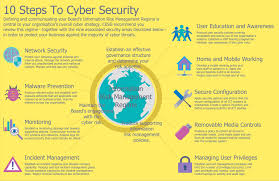RANSOME Cyber Attack - Incident Response
Requirements in Indian Law by Affected Companies
Yesterday’s Ransome cyber-attack.
There are legal &
regulatory requirements on affected Indian companies to report cyber incident
under Information Technology Act, RBI guidelines and telecom license
conditions. The relevant reporting authority depends upon the nature of the
business of the company. There are stringent penalties (including imprisonment)
if such incidents are not reported in certain cases.
Incident
Reporting under CERT Rules
In India, section 70-B of the
Information Technology Act, 2000 (the “IT Act”) gives the Central Government
the power to appoint an agency of the government to be called the Indian
Computer Emergency Response Team. In pursuance of the said provision the
Central Government issued the Information Technology (The Indian Computer
Emergency Response Team and Manner of Performing Functions and Duties) Rules,
2013 (the “CERT Rules”) which provide the location and manner of functioning of
the Indian Computer Emergency Response Team (CERT-In). Rule 12 of the CERT
Rules gives every person, company or organisation the option to report cyber
security incidents to the CERT-In. It also places an obligation on them to
mandatorily report the following kinds of incidents as early as possible:
·
Targeted scanning/probing of
critical networks/systems;
·
Compromise of critical
systems/information;
·
Unauthorized access of IT
systems/data;
·
Defacement of website or
intrusion into a website and unauthorized changes such as inserting malicious
code, links to external websites, etc.;
· Malicious code attacks such as
spreading of virus/worm/Trojan/botnets/spyware;
·
Attacks on servers such as
database, mail, and DNS and network devices such as routers;
·
Identity theft, spoofing and
phishing attacks;
·
Denial of Service (DoS) and
Distributed Denial of Service (DDoS) attacks;
·
Attacks on critical
infrastructure, SCADA systems and wireless networks;
·
Attacks on applications such
as e-governance, e-commerce, etc.
Incident Reporting under
Intermediary Guidelines
Section
2(1)(w) of the IT Act defined the term “intermediary” in the following manner;
“Intermediary”
with respect to any particular electronic record, means any person who on
behalf of another person receives, stores or transmits that record or provides
any service with respect to that record and includes telecom service providers,
network service providers, internet service providers, web hosting service
providers, search engines, online payment sites, online-auction sites, online
market places and cyber cafes.
Rule 3(9)
of the Information Technology (Intermediaries Guidelines) Rules, 2011 (the “Intermediary
Guidelines”) also imposes an obligation on any intermediary to report any cyber
incident and share information related to cyber security incidents with the
CERT-In. Since neither the Intermediary Guidelines not the IT Act specifically
provide for any penalty for non-conformity with Rule 3(9) therefore any
enforcement action against an intermediary failing to report a cyber security
incident would have to be taken under section 45 of the IT Act containing a
penalty of Rs. 25,000/-.
Incident Reporting under the Unified License
·
Clause
39.10(i) of the Unified License Agreement obliges the telecom company to create
facilities for the monitoring of all intrusions, attacks and frauds on its
technical facilities and provide reports on the same to the Department of
Telecom (DoT). Further clause 39.11(ii) provides that for any breach or inadequate compliance with the
terms of the license, the telecom company shall be liable to pay a penalty
amount of Rs. 50 crores (Rs. 50, 00, 00,000) per breach.
A recent example of such an
attack that we have seen from India is the recent data breach involving an
alleged 3.2 million debit cards in India. In the case of this hack the payment processing
networks such as National Payments Corporation of India, Visa and MasterCard,
informed the banks regarding the leaks, based on which the banks started the
process of blocking and then reissuing the compromised cards. It has also been
reported that the banks failed to report this incident to the Computer
Emergency Response Team of India (CERT-In) even though they are required by law
to do so.
Courtesy: The Center for
Internet & Society




No comments:
Post a Comment